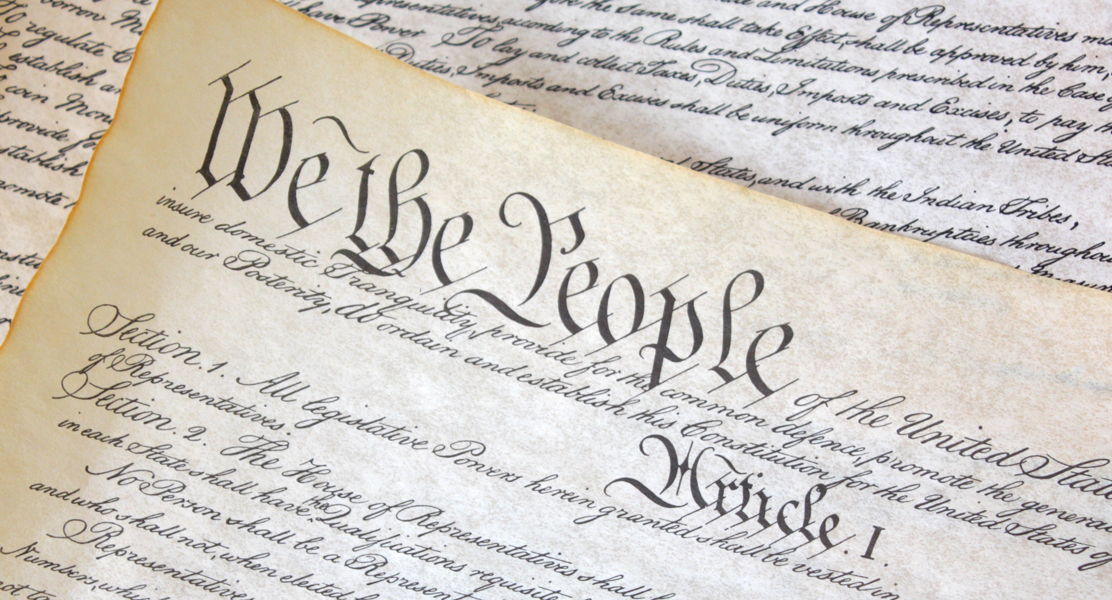Constitution Day reminds us to safeguard the guarantee of No Religious Test

On September 17, we celebrate the anniversary of the signing of the United States Constitution. For those of us who pay special attention to the guarantees of religious freedom in our laws, Constitution Day is an important reminder that the extent of those protections we cherish today was not inevitable at our nation’s founding. Religious liberty was hard-won by those advocating with great foresight and commitment to faith freedom for all.
Want to test your knowledge of the Constitution? Take the BJC Quiz on Instagram Story – today only!
Among the most important expressions of that commitment is Article VI of the Constitution, which states that “no religious Test shall ever be required as a Qualification to any Office or public Trust under the United States.” As BJC Associate General Counsel Jennifer Hawks explains in a new piece for Baptist News Global, during ratification debates, there were many vocal opponents to the ban on religious tests who thankfully did not win the day:
Some opponents believed a religious test was necessary to weed out the “unworthy” or “immoral.” Others were appalled that this lack of a religious test might mean that one day non-Protestants and even non-Christians would hold federal office. Major General John Sullivan summarized the objections in New Hampshire, writing “even if (the religious test) was given up in all other cases, the President at least ought to be compelled to submit to it; — for otherwise, says one, ‘A Turk, a Jew, a Roman Catholic, and what is worse than all, a Universalist, may be President of the United States.’”
Today, even though it is easy to take for granted that Americans of all faiths are eligible to run for any public office, it is important to remain vigilant in safeguarding this key principle. Threats against it can be subtle, as BJC Executive Director Amanda Tyler warned after campaign ads in 2020 targeting then-Senate-candidate Rev. Raphael Warnock, D-Georgia, focused on his previous sermons. “[T]o say that some religious view that you hold would somehow disqualify you for public office,” she said, is a means of “in some way imposing a religious test for public office.”
Likewise, during Senate confirmation hearings for cabinet nominees and judges, questions focusing on a nominee’s religious convictions should be considered out of bounds if we are to hold fast to the no religious test principle. A line of questioning from Senator Bernie Sanders, I-Vermont, for example, during the 2017 confirmation hearing of Russell Vought “imposed a religious test,” according to Tyler, by condemning Vought’s religious view that accepting Jesus is the only path to salvation.
The great American political experiment protects religious freedom for all to believe or not believe according to conscience. That proud history has proven that religious views and adherence do not limit one’s ability to contribute fully as an elected public official. Americans of all faiths and no faith can and do honor civic commitments under the law every day while at the same time staying true to their religious beliefs.
On this Constitution Day, I am mindful that our founding document did not have to include the direct statement of religious inclusion found in Article VI, and I am grateful that it does. Religious liberty advocates must continue to monitor and speak out against those threats to both the letter and the spirit of the ban on religious tests for public office.




